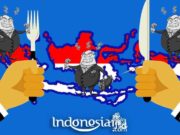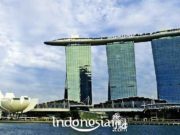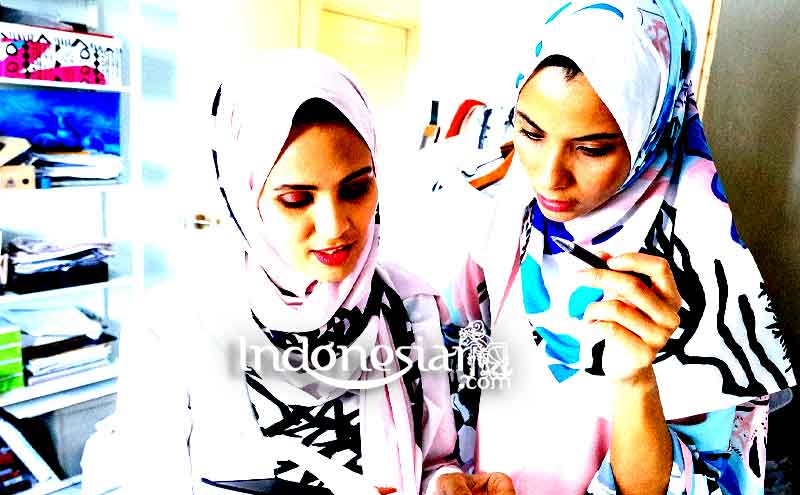Indonesia is a country with a population that is predominantly Muslim. The total population of Indonesia who are Muslim is estimated at 207 million people. This large number indicates that around 13% of Muslims worldwide live in Indonesia.
Indonesia is a secular democratic country with strong Islamic influence. Although the majority of the population is Muslim, the Indonesian state is not an Islamic state based on Islamic laws. Since the inception of this country, there have been many political debates regarding the ideological basis of the Indonesian state.
Some conservative Islamic groups argue that Indonesia should become an Islamic state. However, because there are tens of millions of non-Muslim residents, the establishment of an Islamic state (as well as the application of sharia law) is always seen as a trigger for division and separatism.
Before Islam, various types of religions and beliefs grew in Indonesia, either in the form of animism, dynamism or polytheism. There are at least two of the largest religions practiced by most Indonesians before the arrival of Islam, namely Hinduism and Buddhism.
There are hundreds of kingdoms that adhere to this religion. Maybe sometimes the question arises in our minds “why the majority of the Indonesian population embraces Islam, even though Islam was not the first religion to enter the country of Indonesia”.
The process of entering Islam into Indonesia has been going on for centuries and continues today. Although it is difficult to know the exact history of Islam in Indonesia, it is quite clear that one of the most influential factors in the process of Isalam’s entry into the archipelago was due to international trade.
Muslim traders from various countries have existed in maritime Southeast Asia since the early Islamic period. Other sources also mention that a number of indigenous people have embraced Islam since the early 13th century, recently – the headstones indicate the existence of a Muslim kingdom in North Sumatra in 1211.
The development of Islam in Indonesia is not a fast process, but it is more accurately described as a process of continuous waves of Islamization, a process that continues to this day.
The arrival of Muslim traders (Gujarati Traders) to the Indonesian archipelago in the first century of the Islamic era can be considered as the first wave. The second wave was the Wahabi movement and the Salafi movement which had a strong impact on the propagation of Islam in the archipelago.
These two important reform movements aim to restore the purity of Islam. The Wahabi movement came from Arabia and exerted influence in this archipelago since the early 19th century, while the Salafi movement came from Egypt in the late 19th century.
Apart from the two things above, the history of Islam in Indonesia and its development in the archipelago were also heavily influenced by the opening of the Suez Canal in 1869 which made travel to the Middle East easier. This has resulted in the intensification of communication between the Indonesian nation and the nations.
As we know, most of Indonesia’s population embraces Islam, even though Islam was not the first religion to enter the country of Indonesia.
What makes Indonesia a predominantly Muslim country?
- Islam does not recognize the “caste” system
Islam is a religion that entered Indonesia, especially Java at the end of the heyday of the Hindu-Buddhist kingdom. At that time, even most of the Javanese population embraced Islam because Islam did not discriminate against humans with castes as did many Hindu kingdoms at that time.
With so many supporters and followers of Islam, an Islamic empire was established in Java which spread Islam to other islands so that most Indonesians embraced Islam.
Before Islam entered, society was very constrained by the caste system because of religious ties. Of course this makes it difficult for the lower caste to develop. With the teachings of Islam that teaches all human beings are the same, whether black or white, rich or poor, big or small, what distinguishes only faith and righteous deeds before the Lord of the Universe. Of course with that understanding Islam is easy to accept.
- There is special treatment for individual Muslims
Every individual needs safety and assurance, so this triggers them to choose Islam to declare themselves Muslim. Local kingdoms adopted this new religion because it could provide certain advantages for them in conducting trade transactions with traders who were mostly Muslim.
When someone changes to become a Muslim (including kings and aristocrats), then they will get benefits and special treatment and privileges compared to the treatment obtained by non-Muslims.
- Java Island as the Center of Islamic Civilization
This is because Wali Songo in ancient times spread Islam on the island of Java. Java Island as the center of civilization at that time already had a lot of inhabitants. Until the heyday of the Islamic kingdoms on the island of Java, most of the population had embraced Islam.
Although not all provinces in Indonesia have a Muslim majority population, overall the Muslim community is the majority community in Indonesia.
- Islam teaches all humans the same
The beginning of converting to Islam in the archipelago was brought by Gujarati traders, they were wealthy and successful traders. Islam teaches that everyone deserves to be successful and live a decent life.
There are no restrictions for a person to live, and no one should take the rights of others arbitrarily. With the teachings of Islam, of course, the belief that extracts the wealth of society loses its adherents.
- Islam abolished slavery
Islamic understanding teaches that all human beings have the right to live properly and be treated humanely. This understanding automatically eliminates the system of slavery from one human to another. This understanding has certainly received a warm welcome by the community.
- Islam entered without erasing local culture
The beginning of Islam entered Indonesia peacefully and did not try to erase the existing culture. So, the people at that time were quite enthusiastic. Many methods of preaching and spreading use local cultural media. Like what Sunan Kalijaga did, using puppets as a medium of preaching.
- Marriage between communities
It is undeniable that one of the rapid development of Islam is also due to marriage ties. Muslims who marry into other communities usually require their partners to follow their beliefs, even though a small proportion of Muslims do not.
The densely populated western region of Indonesia generally has a larger Muslim population than eastern Indonesia.
This is because the western region of Indonesia, for a long time, has been part of the international trade route, so that it receives more of the influence of Islam that is spread through the trade process, especially in the area around the Malacca Strait, which has long been one of the busiest sea trade routes in the world, this caused islands closer to the main trade routes to receive more Islamic influence.
This is a brief review of the factors that have influenced the number of Indonesians who embrace Islam. Come on, get interesting information from Indonesiar.com.
Source : galena






























